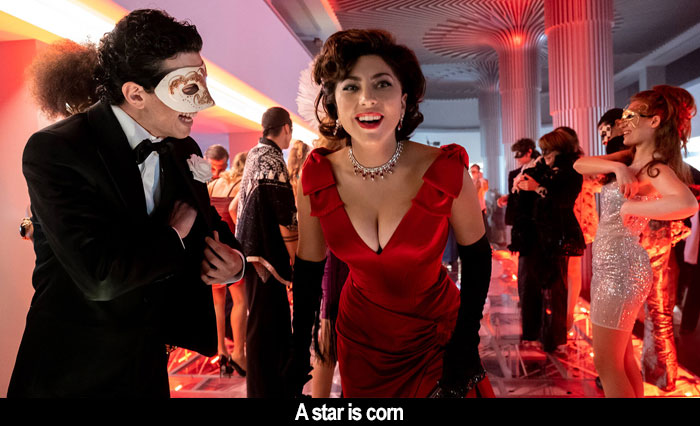
HOUSE OF GUCCI
***/****
starring Lady Gaga, Adam Driver, Jared Leto, Al Pacino
screenplay by Becky Johnston and Roberto Bentivegna
directed by Ridley Scott
BENEDETTA
***½/****
starring Virginie Efira, Charlotte Rampling, Daphné Patakia, Lambert Wilson
screenplay by David Birke and Paul Verhoeven, based on the book by Judith C. Brown
directed by Paul Verhoeven
by Walter Chaw Ridley Scott’s second based-on-a-true-story prestige period piece of 2021 after The Last Duel takes place in the I Love You to Death cinematic universe, wherein formerly dignified actors affect ridiculous Italian accents while taking bullets from hitmen hired by their wives, ex or otherwise. Just the spectacle of watching Adam Driver do a scene with Al Pacino at an Italian picnic, the two of them talking like Mario brothers while a brunette Lady Gaga croaks in an accidental Russian accent is… And the soundtrack! George Michael, Donna Summer, New Order, the Eurythmics–it’s all of it like a Nagel painting come to life: gaudy affectations of glamour and art for the bawdiest appreciators of unintentional camp. Indeed, House of Gucci is prime grist for the headliner in a midnight call-along, or the feature presentation in a future episode of “MST3K”–although, at two-and-a-half hours, I worry the same jokes would keep getting recycled, most of them about the accents, a few of them about sex-pest Jared Leto’s turn as Paolo Gucci, buried beneath a ton of prosthetics that make him look on the outside what he is on the inside. (Here’s the punchline: Leto steals the movie.) A deadly drinking game could be devised from the times Pacino’s accent slips from hilarious Italian to Al Pacino to, during a weird funeral scene, Bela Lugosi Transylvanian. There’s a scene in the last half of the film where Paolo groans into an airport payphone, “I got to wash! If you could smell-a between my groins, you’d-a unnerstan!” while Aldo makes the “c’mon” expression trying to get his attention, and then later Aldo gives Paolo, his little Fredo, the “you disappointed the hell out of me” kiss of death and, again, it’s… Well, it’s notably, spectacularly terrible is what it is. And I liked it.


 by Walter Chaw
by Walter Chaw by Bill Chambers
by Bill Chambers by Walter Chaw
by Walter Chaw![American Gangster (2007); I’m Not There (2007); No Country for Old Men (2007) + No Country for Old Men [’08 BD + 2-Disc Collector’s Edition] – Blu-ray Discs](https://i0.wp.com/filmfreakcentral.net/wp-content/uploads/2009/04/nocountry.jpg?fit=1024%2C427&ssl=1)
 NO COUNTRY FOR OLD MEN
NO COUNTRY FOR OLD MEN by Walter Chaw
by Walter Chaw